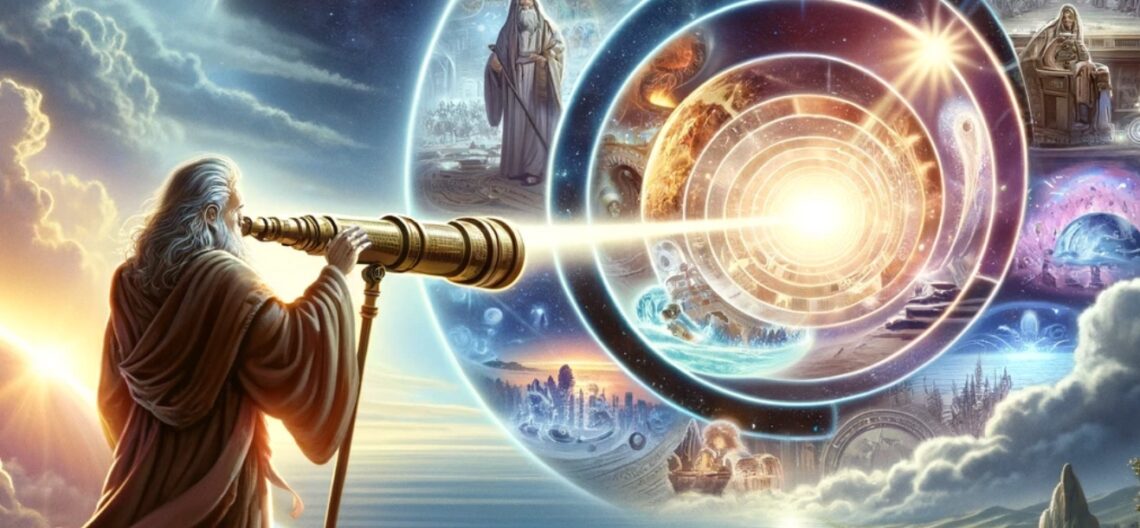(한글은 여기 있습니다)
What I’ve been realising lately is that the truths of the Bible often require deep reflection to parse them out correctly. Events that we think of as singular events often happen over two separate events when we look closely at the Scripture.
- Heaven: Many Christians believe in one heaven and one hell, as in “believers go to heaven, non-believers go to hell.” However, there is more to it. There isn’t just one heaven: there’s “paradise,” where the spirit of a believer upon death goes immediately to be in God’s presence. Then there’s the temporary heaven promised by Jesus in John 14, where the church saints will face Jesus, receive rewards, and participate in the marriage supper during the seven years after the rapture. Additionally, there’s the Millennial Kingdom that Jesus will establish on earth, and ultimately, the new heavens, new earth, and New Jerusalem that God will create after the Millennial Kingdom.
- Hell is also not singular. There are terms like Sheol, Gehenna and the Abyss, but currently, non-believers who die go to a temporary hell. During the Millennial Kingdom, Satan will be imprisoned, possibly in the same place as the temporary hell. Ultimately, Satan, demons, death itself, and all non-believers will be thrown into the lake of fire after the Great White Throne Judgment after the Millennial Kingdom.
- The coming of the Messiah in accordance with Scriptures also happens over two separate events, contrary to what the Israelites expected during His first coming. The first coming was as the suffering servant for the forgiveness of sins (Isaiah 53); the second coming will be as a King to sit on the throne of David and establish His Millennial Kingdom on earth from Jerusalem and ultimately to judge the living and the dead.
- The Holy Spirit’s coming to indwell the Church also occurred in two stages. First, in John 20:22, Jesus breathed on the disciples after His resurrection, marking the beginning of the Holy Spirit’s indwelling and the start of the Church Age. Then, His followers waited in Jerusalem, in obedience to Jesus’ commands just before His ascension. Acts 2:2 records what happened on the Pentecost, when the Holy Spirit was poured out, filling the believers with power.
- The Holy Spirit’s outpouring on the Church also happens in two separate periods, in accordance with the patterns of the rains in due season (Leviticus 26:4): first, at the initial Pentecost and subsequent days during the early Church era; and second, starting with the early 20th-century Azusa Street Revival, spreading globally as the Pentecostal movement, according to the patterns of the latter rain. Zechariah 10:1 instructs us to ask the LORD for rain in the time of the latter rain, indicating now is the time to ask God for the outpouring of the Holy Spirit.
- Jesus’ second coming also occurs in two stages: first the rapture event, when He meets the church saints in the air (John 14: 1-3, 1 Thessalonians 4:13-18, 1 Corinthians 15:51-52), and secondly His Second Coming to earth together with the church saints to defeat the Armageddon army and usher in the Millennial Kingdom from Jerusalem (Revelation 19:11-16).
- Bodily Resurrection also occurs in two stages: the “first resurrection” of believers to reign with Christ during the Millennial Kingdom and beyond; and the general resurrection of all unbelievers, the wicked, etc at the end of the Millennium to face the Great White Throne judgement (see below).
- The First Resurrection itself sub-divides into the resurrection of the church saints before the Tribulation (1 Thessalonians 4:13-16), followed by the resurrection of the OT saints and tribulation martyrs at the end of the Tribulation (Revelation 20:4-5). Incidentally, this is the detail that many believers get wrong and they wrongly conclude on Post- or Mid-tribulational rapture, even though there are more significant issues facing those schemes (such as the Imminence of Christ’s Return).
- God’s judgment on the world also happens twice: first, at the start of the Millennial Kingdom, when nations are judged according to how they treated Israel (the sheep and goat judgment of Matthew 25:31-46), and second, after the Millennial Kingdom ends, when all people will be resurrected for the Great White Throne Judgment (Revelation 20:11-15). Church saints after the rapture will face the Bema Seat Judgment to receive rewards to wear at the marriage ceremony of the Lamb (1 Corinthians 3:13-15).
- Israel and the Church: Within the Church (One New Man), all distinctions between Jews and Gentiles disappear through Jesus’ blood (Ephesians 2:11-22), yet Israel remains distinct from the Church and still has a significant role in God’s redemptive plan (Romans 11).
- The re-gathering of Israel, often mentioned in the Old Testament, happens over two (and no more than two, see Isaiah 11:11) separate re-gatherings: the first re-gathering in unbelief for judgment (what we see happening now in the modern state of Israel, before the seven-year tribulation. Ezekiel 20:34-38, Ezekiel 22:17-22, Zephaniah 2:1-2), and the second re-gathering in belief for blessing (God’s supernatural gathering at the end of the great tribulation. Deuteronomy 30:1-5, Isaiah 27:12-13, Ezekiel 39:27-29).




